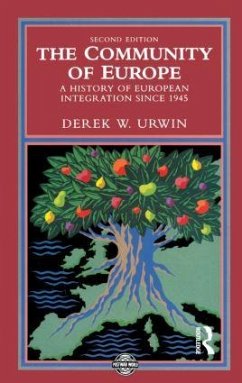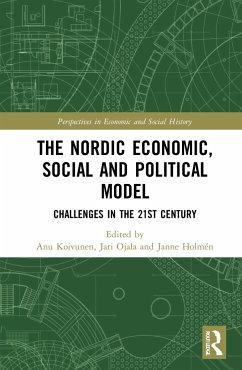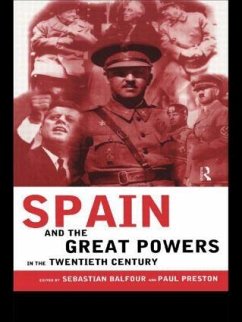
Regional Cooperation and International Organizations
The Nordic Model in Transnational Alignment
Herausgegeben: Götz, Norbert; Haggrén, Heidi
Versandkostenfrei!
Versandfertig in 6-10 Tagen
56,99 €
inkl. MwSt.

PAYBACK Punkte
28 °P sammeln!
This book explores the roles of national actors within international organizations, with particular emphasis on the collaborative approach adopted by Nordic governments and associations.Analyzing Nordic regional cooperation within international organizations, this volume seeks to shed light on the politics of alignment and distinct macro-regional identity-building in international arenas. Exploring the middle ground between the national and the international, contributors discuss how Nordic governments and associations have successfully created and used the image of a distinct group within the...
This book explores the roles of national actors within international organizations, with particular emphasis on the collaborative approach adopted by Nordic governments and associations.
Analyzing Nordic regional cooperation within international organizations, this volume seeks to shed light on the politics of alignment and distinct macro-regional identity-building in international arenas. Exploring the middle ground between the national and the international, contributors discuss how Nordic governments and associations have successfully created and used the image of a distinct group within the international system and where they have failed. Presenting a richer picture of international and transnational relations, the volume's features include:
a key focus on the 'Nordic model' with its schism in regard to the EU
studies on cooperation between governments and within civil society, including trade unions and anti-EU movements
contributions from Nordic and international experts highly respected in their fields
Seeking to move beyond neo-realist and cosmopolitan approaches in international studies, Regional Cooperation and International Organizations will be of interest to students and scholars of international relations, regionalism, Nordic studies, and Transnationalism.
Analyzing Nordic regional cooperation within international organizations, this volume seeks to shed light on the politics of alignment and distinct macro-regional identity-building in international arenas. Exploring the middle ground between the national and the international, contributors discuss how Nordic governments and associations have successfully created and used the image of a distinct group within the international system and where they have failed. Presenting a richer picture of international and transnational relations, the volume's features include:
a key focus on the 'Nordic model' with its schism in regard to the EU
studies on cooperation between governments and within civil society, including trade unions and anti-EU movements
contributions from Nordic and international experts highly respected in their fields
Seeking to move beyond neo-realist and cosmopolitan approaches in international studies, Regional Cooperation and International Organizations will be of interest to students and scholars of international relations, regionalism, Nordic studies, and Transnationalism.














